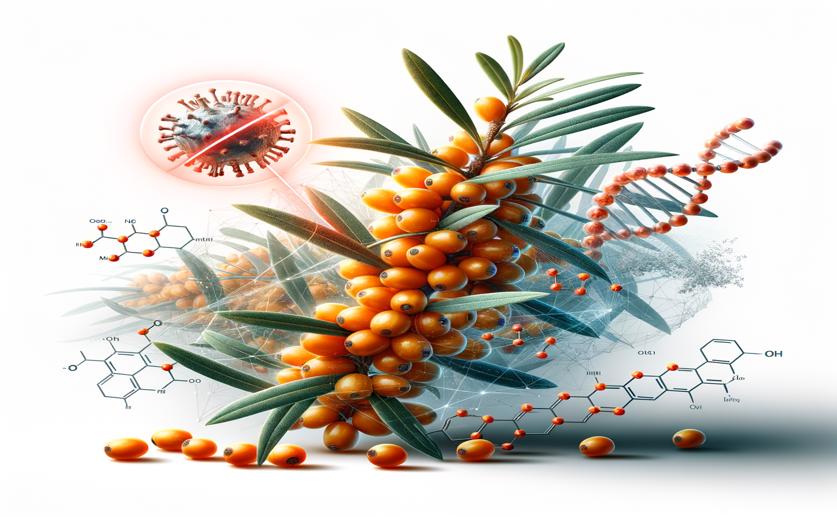
Sea Buckthorn-based Nano-Medicine Reduces Growth in Aggressive Breast Cancer
Jenn Hoskins
13th August, 2024

Image Source: Natural Science News, 2024
Key Findings
- Researchers from Zhejiang Sci-Tech University developed a new treatment combining sea buckthorn polyphenols and metformin to target triple-negative breast cancer (TNBC)
- This new treatment significantly inhibited cell growth in TNBC cell lines without harming normal cells
- The treatment works by inducing programmed cell death in TNBC cells through specific pathways, leading to effective cancer cell elimination
References
Main Study
1) Hippophae Rhamnoides-derived Phytomedicine Nano-System Modulates Bax/Fas Pathways to Reduce Proliferation in Triple-Negative Breast Cancer.
Published 12th August, 2024
https://doi.org/10.1002/adhm.202401197
Related Studies
2) Bak instead of Bax plays a key role in metformin-induced apoptosis s in HCT116 cells.
3) Metformin-induced ROS upregulation as amplified by apigenin causes profound anticancer activity while sparing normal cells.
4) In vivo genome-wide CRISPR screen reveals breast cancer vulnerabilities and synergistic mTOR/Hippo targeted combination therapy.



 2nd August, 2024 | Jim Crocker
2nd August, 2024 | Jim Crocker